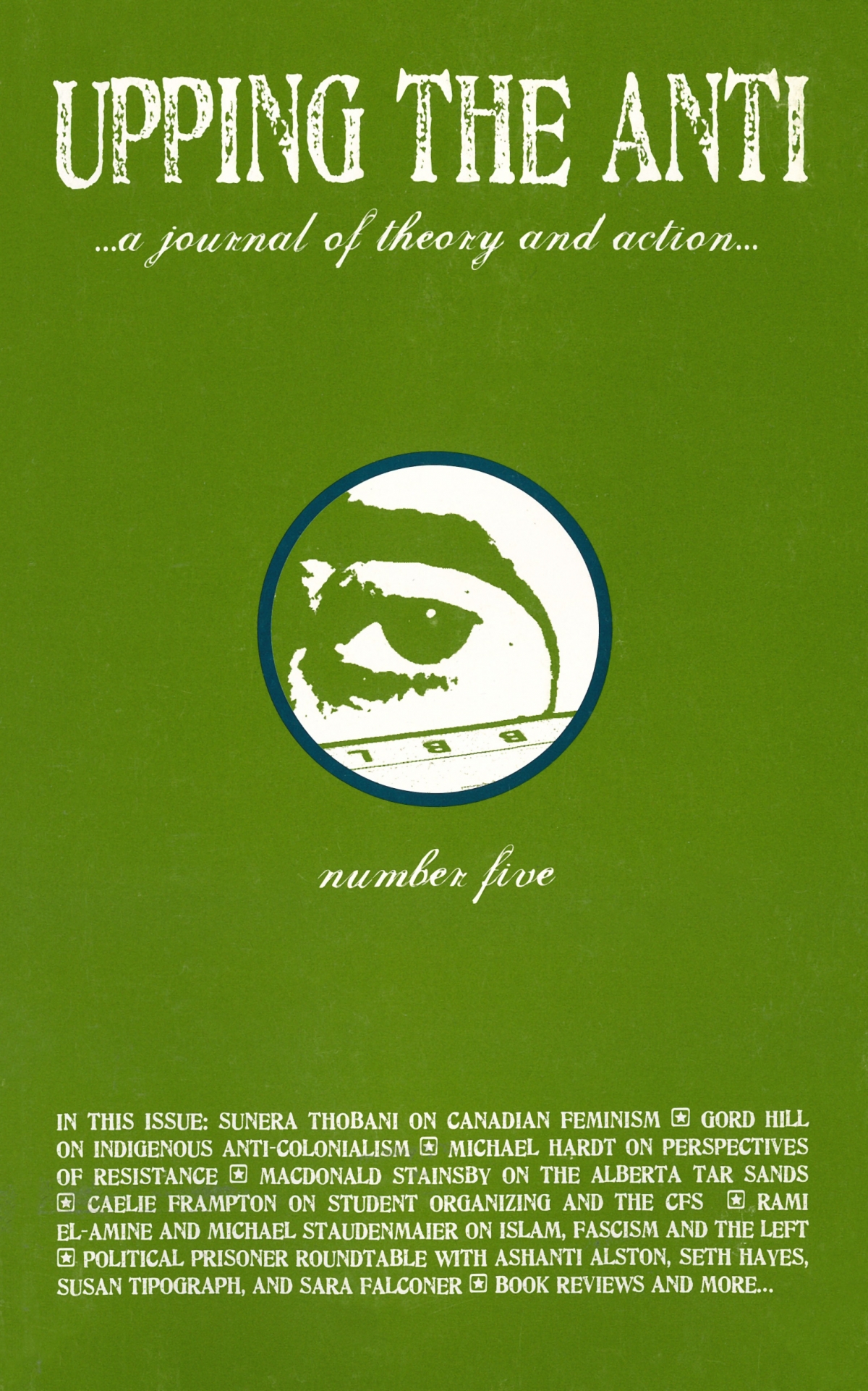"Activism” and the WSF
Dear UTA, In the previous issue of Upping the Anti, both Carmelle Wolfson and Lesley Wood raise important questions about the 2007 World Social Forum (WSF) in Nairobi, Kenya. Both writers take issue with the Western “activist,” who Wolfson and Wood identify as often being white, middle class, and/or a member of a church group or NGO. Their insights into the problems of activism echo my experiences at the World Youth and Student Festival (WYSF) in Caracas, Venezuela in August of 2005, as well as the arguments advanced by Mukoma Wa Ngugi in his article “Farewell to Political Activism: Reflections from South Africa.”
In August of 2005, I went to the WYSF, which is a smaller version of the WSF for younger participants. After attending this festival, I met many like-minded folks in Toronto. Through political networking made possible by the festival, I also developed a friendship with another university student.
About two years after Caracas, this friend and I began to discuss the problem of the term “activist,” which seemed to us to suggest someone who takes up activism as a hobby – like tennis, for example. During this discussion, my friend pointed out that he could pinpoint his experience at the WYSF as the event that changed the way he understood social change. Before going to the festival, my friend believed social reform could bring about the change he wanted to see in the world. After an introduction to the changes being made in Venezuela, his political stances began to move away from his previously reformist views. He began to develop revolutionary sentiments. His experience reveals the possibilities for radicalization that these forums and festivals bring.
Wood makes a distinction between grassroots activists and members of church groups or other organizations. But the outstanding question remains: at what point does the grassroots activist become a revolutionary? In “Farewell to Political Activism,” Mukoma Wa Ngugi suggests that the term “activist” be put to rest. In a discussion of a Pan-Africanism from below and without borders, he notes:
Understanding the problem, history not withstanding, lies in comprehending when and why the revolutionary became a political activist. The activist, as I understand it, was born in the late 1980s and early 1990s, when the revolutionary died. Revolutions under the banner of Marxism had degenerated to coups and counter-coups which produced paranoid movements and dictators. By the early 1990s, even the thin banner of Marxism was no longer being hoisted. It was war for power, one group against the other for the state house. Communism in the East collapsed; and with the chaos and deaths that followed, it was no longer fashionable to talk about the masses, classes and revolution.
If we change our vocabulary, will the actions we take to make change happen become clearer? Vocabulary arises within particular contexts. If we use the term “revolutionary,” instead of “activist,” how would that affect the decisions we make in our grassroots organizations? Wa Ngugi’s conclusion urges the radicalization of the activist:
Political activism would not dream of changing governments or unifying African people. Revolutionary thinking that is cognisant of the world as it stands will. In this 21st century of a thousand changes: we are either revolutionary, or we are not.
Despite the problems with the WSF that Wolfson points to, it is important to recognize that the possibilities for networking and radicalization pointed out by Wood are both real and immense. My friend’s experience illustrates how social forums can encourage radicalization. Even if the forums themselves are not revolutionary, we should remain committed to the processes of radicalization they encourage and capitalize on the political growth they enable.
In Solidarity,
Carmen Teeplehopkins Paris, France

